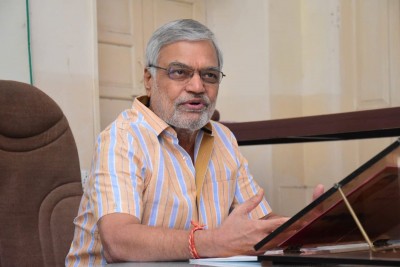New Delhi, Jan 7 : The Supreme Court on Thursday sought a response from Rajasthan Assembly Speaker C.P. Joshi on a plea by the Bahujan Samaj Party, challenging the merger of its six MLAs in the state into the ruling Congress.
A bench of Justices S. Abdul Nazeer and K.M. Joseph issued notice to the Speaker, the Assembly Secretary, and the six MLAs on the plea, which challenged the validity of the Rajasthan High Court’s August 24, 2020 order, holding that the order of the Speaker on September 18, 2019 was an administrative order and not one adjudicating the claim of the merger.
Senior advocate Satish Chandra Mishra, representing the BSP, contended before the bench that the Speaker’s order approving the merger was not correct.
MLAs Rajendra Singh Gudha, Lakhan Singh Karaul, Deep Chand, Joginder Singh Awana, Sandeep Kumar and Wajid Ali — who were elected on the BSP ticket, had, on September 16, 2019, filed an application with the Speaker stating that they had merged with the Congress.
On September 18, 2019, the Speaker accepted the merger.
However, the BSP, which sought an interim stay on the High Court order, said: “Neither the Rules, 1989 nor the provisions of the Tenth Schedule empower the Speaker to decide the claim of merger. The findings recorded by the Speaker with respect to provisions of para 4 of the Tenth Schedule cause serious prejudice to the rights of the petitioner.”
The BSP has also challenged the Speaker’s order which granted the benefit of the Tenth Schedule to these MLAs, without deciding the disqualification petition against them.
“The order of the Speaker accepting the claim of merger giving the benefit of para 4(2) of the Tenth Schedule, amounts to putting the cart before the horse by providing the defence in the hands of defectors in advance for being used by them as and when the application for disqualification is filed,” said the plea.
The BSP said the High Court failed to consider that the principles of natural justice apply even to an administrative action and are fundamental to rule of law.
Disclaimer: This story is auto-generated from IANS service.

